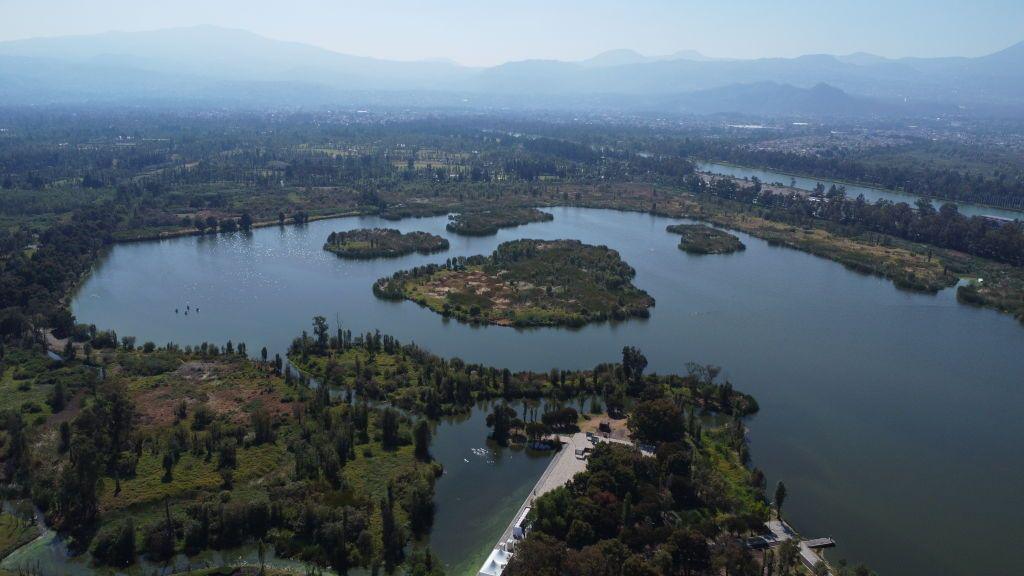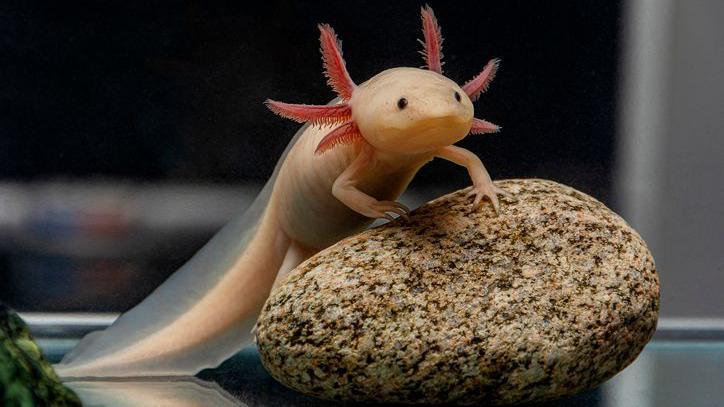Endangered axolotls successfully released in the wild in Mexico
Endangered axolotls successfully released in the wild in Mexico
- Published
Experts say there's good news for one of the world's most endangered amphibians, the axolotl.
Conservationists have successfully released 18 of the creatures into the wild in Mexico.
They say the axolotls have "thrived" after being introduced in artificial wetlands, and have even made friends.
According to the team, their results provide hope for the long-term future of the animals, which were at one point at risk of extinction.
More animal news
How did the toad cross the road?
- Published30 April
Philadelphia Zoo wants help naming new tortoise hatchlings
- Published25 April
How do zoos look after older elephants?
- Published15 April
What's happened?

The waters of Xochimilco used to be full of axolotls
The waters of Xochimilco near Mexico's capital used to be full of axolotls but over time, as Mexico City's population grew, factors such as urbanisation and pollution put pressures on the amphibians leaving them on the brink of extinction.
Some estimates suggested that at one point, there were as few as 50 left in the wild.
An international team of scientists decided to see if they could bring back the creatures to their native habitat.
They released 18 captive-bred axolotls in restored and artificial wetland close to Mexico City.
The researchers fitted the animals with tiny radio trackers so that they could monitor them after their release.
Experts found that the axolotls "survived and foraged successfully at both sites".
Lead researcher Dr Alejandra Ramos from the Autonomous University of Baja California said it was an "amazing result".

The monitoring also revealed interesting insights into their behaviour.
Dr Ramos explained: "We found that some spend most of their time with one other individual - like they make these little friendships."
She added that their results also show how much of a difference conservation can make and that anyone can take part too.
"Many animals are losing their habitat around the world," said Dr Ramos.
"And restoration projects are not easy, but they can be done - they just need a lot of people.
"You don't need to be a scientist to get involved - everybody in the world can help out."
